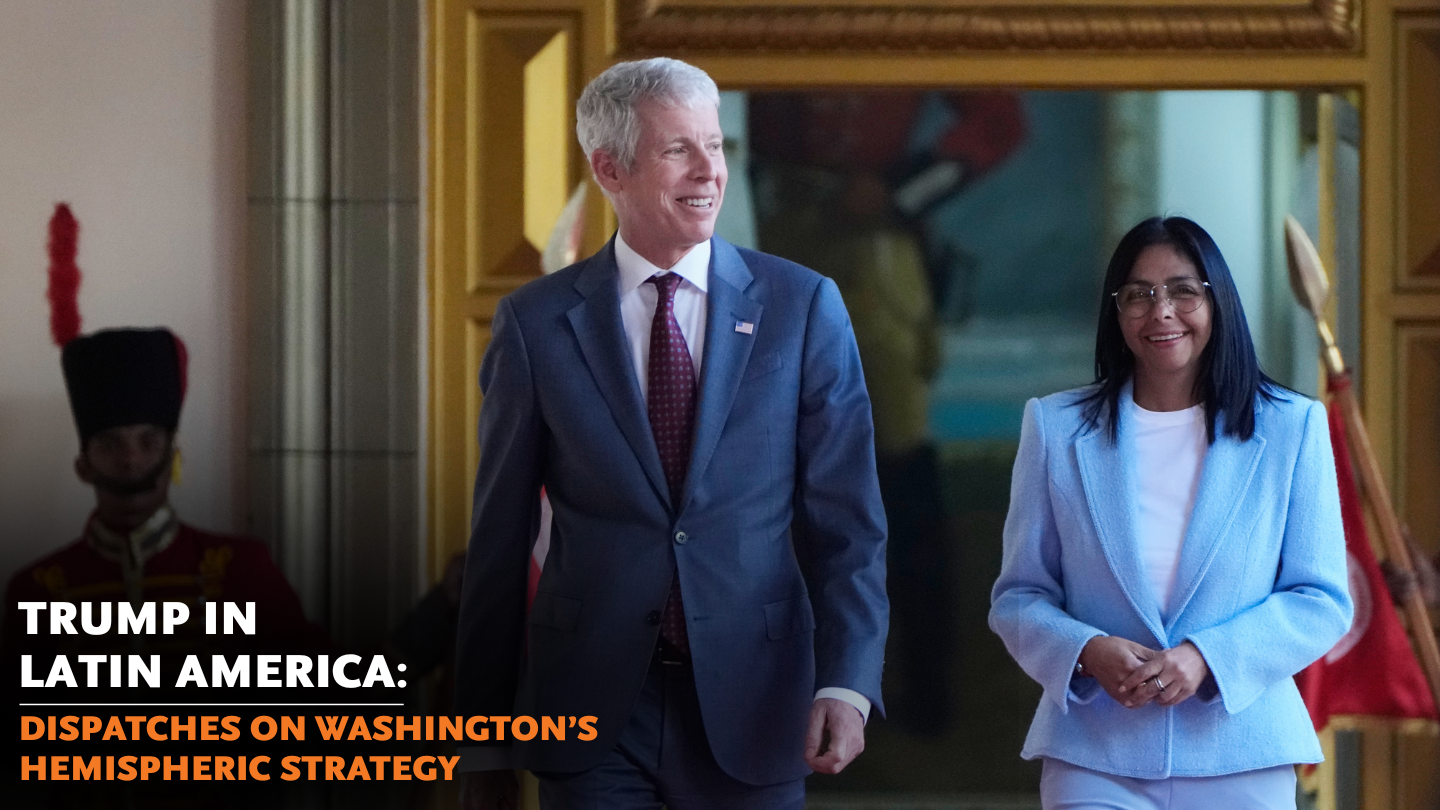The Lame-Duck FTA Push
The Lame-Duck FTA Push
With a political transition in progress, the Bush administration continues to urge passage of the U.S.-Colombia trade pact. But whether the deal will gain congressional approval during a lame-duck session remains in doubt.
As eyes turned to the White House for the first meeting between the current and future Oval Office occupants, rumors arose that the Bush administration tied ratification of the Colombia trade deal to a possible bailout package for Detroit’s struggling auto manufacturers. A New York Times article reported that President George W. Bush said he may back the bailout proposed by Democrats in Congress in exchange for approval of the bilateral Free Trade Agreement (FTA).
But John Podesta, the president-elect’s transition chief, denied reports that Bush had offered such conditional support when he met with Barack Obama on Monday. White House spokeswoman Dana Perino echoed this, saying “there was no linkage” between the FTA and a potential auto bailout package. Yet, as a Los Angeles Times article discusses, the fact that the Colombia FTA arose as a topic of conversation during the meeting indicates that Bush sees approval of the pact, long stalled in Congress, as an important part of his political legacy. Congress plans to hold a lame-duck session with the goal of pushing through aid for the car industry, but whether or not pending FTAs with Colombia and Panama will gain approval remains in doubt.
Democratic lawmakers and U.S. labor leaders have argued against approving the FTA because of killings of Colombian trade unionists carried out by right-wing paramilitary squads. Moreover, the murders of innocent civilians falsely identified as guerillas recently came to light, forcing Colombian President Álvaro Uribe to dismiss 20 army officers.
But the Bush administration points out that the Colombian government has witnessed significant results stemming from its efforts to protect trade unionists and boost security in a country plagued by a four-decade war with leftist guerillas. The murder rate among unionists rests at one-seventh the rate for the general population and the Colombian government established a security program that protects 1,900 union members, according to a fact sheet by the Office of the U.S. Trade Representative. In a Miami Herald op-ed from April, U.S. Defense Secretary Robert M. Gates noted that “[v]iolent crime is half of what it was only six years ago.”
Others have pointed out that approval of the Colombia pact would economically benefit the United States. Colombia currently enjoys little in the way of tariff restrictions to U.S. exports while the deal would lower duties on U.S. exports, opening the Colombian market to American goods. Earlier this week, the Washington Post published an editorial urging for the pact’s approval, particularly at a time of widespread financial insecurity. “With U.S. goods exports to Colombia totaling over $8 billion per year, the pact offers a nifty dose of stimulus for U.S. businesses and workers,” says the article, which points out that, while Washington stalls on the deal, the EU announced plans to launch trade talks with Colombia.
Commerce Undersecretary Christopher Padilla predicted Thursday that the Obama administration will face significant resistance to free trade deals. During the last presidential debate in the lead up to Election Day, Obama himself voiced opposition to the pact’s approval. With that in mind, some have called on Congress to avoid political pressures that could prevent the FTA’s passage by approving the pact before January’s inauguration. The Wall Street Journal recommends that the President-elect “pick up the phone, call [House Speaker Nancy] Pelosi, and tell her that he wants all of the FTAs brought to the floor during the lame duck.” Writing for the new Americas Quarterly blog, COA Vice President Eric Farnsworth also suggests putting the pacts to vote now and “make entry into force contingent on various measures that the government of Colombia would agree to take on—transparency, human rights, and other matters as appropriate, along with the routine commercial issues that are always addressed prior to entry into force of agreements.”
Access a COA resource guide to the U.S.-Colombia FTA.








